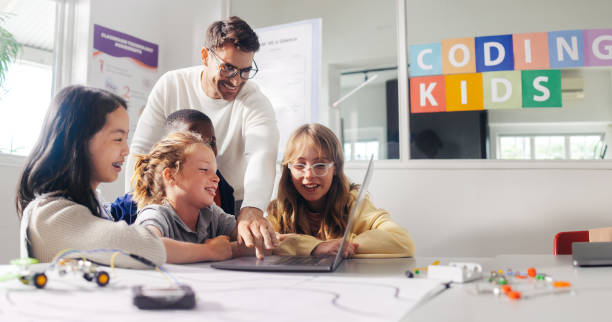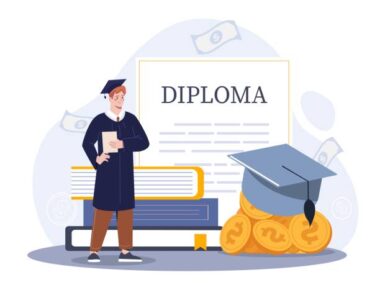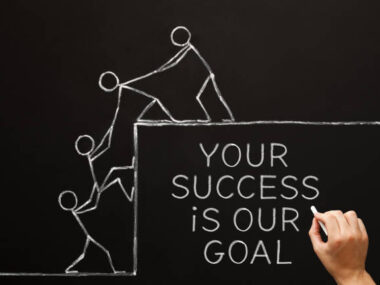Early childhood is a crucial stage where the foundation for life’s learning is laid. Ensuring that educators are prepared to guide and facilitate the growth of young children is paramount, and this is where early childhood education certification becomes invaluable. This professional qualification arms teachers with the necessary tools to nurture developmental milestones and shape the future of education.
Early Childhood Education Certification Programs
These programs are gateways to molding the youngest minds of our society. Early childhood education certification programs dive deep into child psychology, effective teaching practices, and the intricacies of curriculum building. Beginning with an overview of the main elements:
- Child Development: Understanding the stages of growth and psychological milestones.
- Teaching Strategies: Incorporating learning techniques suitable for young minds.
- Classroom Management: Creating an environment conducive to learning and development.
- Curriculum Design: Structuring the content and experience for optimal education.
The certification programs intertwine theoretical knowledge with hands-on experiences, often culminating in a supervised teaching component. After certification, educators are launched into environments like preschools and public schools, where they influence the early stages of a child’s education journey.
Child Development: Emphasizes the physical, cognitive, and social-emotional growth stages.
Teaching Strategies: Focuses on engagement, communication, and adaptive learning methods.
Classroom Management: Encourages creating a safe, inclusive, and supportive learning space.
Curriculum Design: Aids in developing thematic, integrated, and child-centric educational plans.
Typically, certifications include a mix of coursework and practical application, requiring candidates to demonstrate their understanding and ability to apply educational concepts effectively.
What Is An Early Childhood Education Certification?
Early Childhood Education Certification is a defining step in a teacher’s career path. It is a professional accreditation specific to those keen on fostering growth among children from birth to around eight years old. This certification acts as an endorsement of the educator’s capabilities and dedication to the field.
To achieve this certification, one must immerse themselves in:
- Coursework: Educational theories and practices specific to early childhood education.
- Practical Experience: Applying learned concepts in real-world early childhood settings.
- Exams: Standardized evaluations that test one’s knowledge and skills in early childhood education.
Although requirements vary, the essence of what is learned remains central:
- Understanding how children develop and think.
- Creating and implementing learning experiences that are age-appropriate.
- Engaging with families and communities to enhance children’s educational experiences.
Earning this certification does more than signify competence; it positions the educator as a pivotal player in a child’s early life, opening doors to a robust career and the satisfaction of having a lasting impact.
How Can I Obtain An Early Childhood Education Certification?
Aspiring to be at the helm of a classroom for young learners? Here’s how you can obtain your early childhood education certification:
1. Research Regulations: Every region has its own benchmarks and requirements.
2. Academic Pursuits: Enroll in an accredited education program that offers degrees and preparation for certification.
3. Hands-On Learning: Complete practicums or internships to acquire the necessary experience.
4. Pass Required Exams: Showcase your knowledge through required certification trials.
5. Official Certification: Submit all proper forms and fees to receive your credentials.
The journey to certification involves significant investment in time, effort, and often, finances. However, the rewards—both personal and professional—are boundless.
What Are The Prerequisites For Enrolling In An Early Childhood Education Certification Program?
Before embarking on the program, prepare to meet these prerequisites:
- A high school diploma or GED is the ticket in.
- Preliminary courses or experience might be required.
- Clean background checks to ensure the safety of all children.
- Satisfactory scores on a basic skills assessment.
- Emergency preparedness through CPR and First Aid certifications.
Securing these foundational requirements ensures that you’re ready for more advanced study in child education and that you possess the professional and ethical standards needed for success in the field.
Does An Early Childhood Education Certification Allow Me To Teach At Any Grade Level?
An Early Childhood Education Certification authorizes you to teach the youngest in our schools, specifically:
Children from infancy to around third grade, navigating the formative early years.
Particularly focused on the unique developmental needs of preschool and early primary grades.
If you wish to teach upper levels, this might necessitate additional certifications.
Keep in mind:
State regulations are the final word on grade-level qualifications.
Lifelong learning is recommended to stay relevant and attuned to educational advancements.
This focus ensures that as an educator, your skills and approach are finely tuned to the age group for which you’re certified.
How Long Does It Typically Take To Complete An Early Childhood Education Certification Program?
The duration of certification programs varies, with factors influencing the timeline:
- Certificate programs may only take several months.
- Associate degrees generally require up to two years.
- Look to accelerated and online options for a faster route to certification.
- Part-time study extends the timeframe, while full-time can expedite it.
- Individual circumstances, such as educational background and state mandate, play a role.
Patience and perseverance are keys as you navigate this academic undertaking, the fruits of which are boundless opportunities to inspire and educate.
Early Childhood Education Certification Online
The digital space offers flexibility with early childhood education certification online, featuring:
- Self-paced learning that fits into various lifestyles.
- Comprehensive coverage of pertinent educational topics.
- Interactive elements to simulate classroom experiences.
- Accreditation that ensures the qualification is respected and valid.
Remote learning paves the way for a more inclusive and adaptable approach to securing this essential certification, ensuring that all who wish to forge a career in early childhood education have the opportunity to do so.
Obtaining an early childhood education certification is a significant step towards a rewarding career in teaching the youngest learners. It’s a journey of growth, dedication, and commitment to fostering early childhood development that fills a vital role in shaping our future society.
Certified educators stand as pillars of a strong start in life, whether guiding in-person or online, nurturing generations to come.
Exploring Early Childhood Education Certification Programs in Your Area
Embarking on a career in early childhood education is not just about having a passion for teaching young children—it involves a formal process of training and certification that ensures educators are adequately prepared to foster the development of young minds.
When searching for “early childhood education certification programs near me,” you are taking the first step towards a profession that shapes the foundational years of education. By honing in on programs in your vicinity, you can choose a pathway that fits your personal circumstances, whether it’s in terms of the location, the time investment required, or the specific age group you are interested in teaching.
Types of Certification Programs Available
Early childhood education certification programs can vary depending on the institution and the state’s requirements, but here are some common types of programs you might find:
Associate Degrees: These typically take two years to complete and provide a solid foundation in early childhood education. Courses often include child development, educational psychology, and classroom management strategies.
Bachelor’s Degrees: A four-year degree gives a deeper understanding and a broader set of skills in the field. Graduates with a bachelor’s degree often have more career opportunities and may be required for certain positions.
Certificate Programs: These are shorter programs that could last from a few months to a year. They focus on the essentials and practical skills needed to work in early childhood education.
Online Certifications: For those who need flexibility, online certification programs allow for study from the comfort of your own home, on a schedule that works for you.
Selecting the Right Program
Here are some factors to consider when choosing an early childhood education certification program:
Accreditation: Ensure that the program is accredited by a recognized body. This ensures the quality of the education and that the certification will be acknowledged by employers.
Curriculum: Look at the courses offered and determine if they align with your career goals. Consider programs that offer specializations if you’re interested in focusing on a particular aspect of early childhood education.
Practicum Opportunities: Hands-on experience is essential. Check if the program offers fieldwork or practicum experiences that allow you to practice teaching under the guidance of experienced educators.
Cost: Consider the financial investment and investigate if there are financial aid options available such as scholarships, grants, or work-study programs.
Location: Proximity may be important to you; however, don’t discount programs that are slightly farther away if they offer a superior curriculum or better opportunities post-graduation.
Reputation: Research the success rate of the program’s graduates. Look for testimonials, reviews, and employment statistics to gauge the effectiveness of the program.
Positive early childhood education experiences have a significant impact on a child’s lifelong learning journey. By getting certified, you gain the opportunity not only to contribute to this vital stage but also to grow as a professional.
Keep in mind that certifications may require continual professional development, renewals, and adherence to the latest pedagogical practices. If you’re ready to take the next step, research the various certification programs available that align with your career goals and educational philosophy.
Whether you’re pursuing a CDA, NAEYC accreditation, or a specialized area like Montessori certification, ensure the program you select is recognized and respected in the field of early childhood education.
Don’t forget to highlight your certification in your resume and online professional profiles, as parents and employers often search for qualified educators who have demonstrated their commitment to excellence in early childhood education. By investing in your certification now, you’re laying the cornerstone for a rewarding and impactful career shaping the minds of tomorrow’s leaders.
Why Consider Free Early Childhood Education Certification?
Entering the world of early childhood education can be incredibly fulfilling, as you get the chance to shape young minds at a crucial developmental stage. However, not everyone has the finances to invest in formal education. This is where free early childhood education certifications become a game-changer.
Advantages of Free Certifications
Accessibility: These programs open doors for aspiring educators worldwide, who may not have access to paid programs.
Flexible Learning: Many of these certifications offer online courses that can be completed at your own pace, fitting around your current job or personal commitments.
Career Opportunities: Achieving certification can lead to entry-level positions in the field, and can enhance your resume when applying for jobs.
Where to Find Free Certifications
Nonprofit Organizations: Groups such as UNICEF or Save the Children sometimes offer free training to educators, particularly in underprivileged areas.
Online Platforms: Websites like Coursera and edX partner with universities to provide free courses, though there may be a fee for the actual certificate.
Government Programs: Some governments offer free training for early childhood educators as an investment in future generations.
Key Topics Covered in Certification Programs
Child Development: Understanding how children grow and learn is foundational in early childhood education.
Curriculum Development: Learn to create engaging and developmentally appropriate learning activities.
Classroom Management: Effective strategies to create a positive learning environment.
Special Needs Education: Learn to support children with diverse learning needs.
Health and Safety: Ensuring the wellbeing of children in your care.
What Next After Certification?
Upon completing your free early childhood education certification, you’ll be equipped with the essential knowledge to start working with children. Many choose to continue their education while working, pursuing further qualifications to advance their career prospects.
Keep in mind that while free certifications are a great start, continual professional development is key in the ever-evolving field of early childhood education.
As we wrap up our deep dive into the avenues open to you following your early childhood education certification, it’s imperative to remember that the journey doesn’t end at certification. Free certifications can set the foundation for your career, but the realm of early childhood education is dynamic, with new research and methodologies emerging regularly.
To stay relevant and impactful in your role, continual professional development is not just recommended—it’s essential. Subscribe to industry journals, attend workshops and seminars, and join professional networks to stay informed.
Regularly update your skills with additional courses and certifications to ensure you can offer the best educational experiences to the young minds you are shaping.
Furthermore, engage with online communities and participate in forums to exchange ideas with peers. This will not only expand your knowledge base but also enhance your online presence, which is crucial in the digital age. Employers and parents alike are increasingly turning to the internet to find qualified educators, and a strong digital footprint can significantly enhance your career prospects.
By embracing the philosophy of lifelong learning and recognizing the importance of staying ahead of the curve, you can transform your initial certification into a blossoming career that makes a real difference in the lives of children. Don’t let the momentum stop with your certification—let it be the springboard that propels you toward a rewarding and progressive career in early childhood education.
Your certification is just the beginning. Stay curious, stay passionate, and never stop learning, because the future of education is in your hands, and it changes one child at a time.






